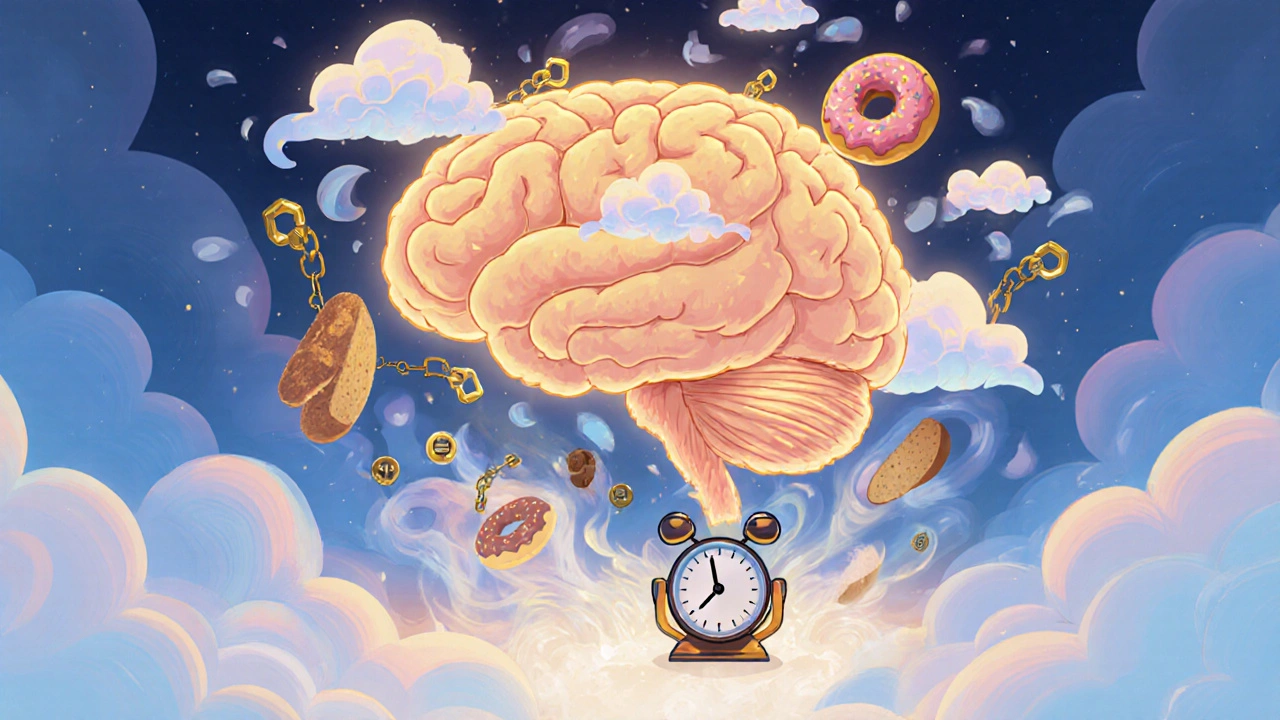Mirtazapine Appetite: How This Medication Affects Hunger and Weight
When you take mirtazapine, a tetracyclic antidepressant used primarily for depression and anxiety. Also known as Remeron, it works by increasing certain brain chemicals like serotonin and norepinephrine—but one of its most noticeable effects isn’t on mood, it’s on hunger. Many people start taking mirtazapine for depression or trouble sleeping, only to find they’re eating more than usual—even when they weren’t hungry before. It’s not a glitch. It’s a direct side effect built into how the drug interacts with your brain’s appetite control centers.
This isn’t just about craving snacks. Mirtazapine boosts appetite by blocking histamine H1 receptors in the hypothalamus, the part of your brain that tells you when you’re full. When those signals get muted, food feels more rewarding, meals become more appealing, and the urge to eat lingers longer. For someone struggling with depression-related weight loss or eating disorders, this can be a lifesaver. But for others, it leads to unexpected weight gain—sometimes 5, 10, or even more pounds in a few months. It’s not laziness. It’s pharmacology.
Related to this effect are two other key players: weight gain, a common outcome of long-term mirtazapine use, and appetite stimulation, the intended or unintended increase in food intake. These aren’t random side effects—they’re predictable, well-documented, and often discussed in clinical settings. Doctors sometimes prescribe mirtazapine specifically for patients with cancer, HIV, or anorexia who need to gain weight. Meanwhile, people using it for anxiety or insomnia may not realize their late-night snacking is drug-induced.
What’s interesting is how this side effect compares to other antidepressants. Most SSRIs like sertraline or fluoxetine tend to suppress appetite early on. Mirtazapine does the opposite. That’s why it’s often chosen for patients who’ve lost weight due to depression or who have poor appetite from chronic illness. But if you’re not trying to gain weight, you’ll need to plan ahead. Portion control, regular meals, and choosing nutrient-dense foods can help manage the extra hunger without derailing your health goals.
There’s no one-size-fits-all answer. Some people gain weight quickly, others don’t. It depends on your metabolism, how long you’ve been on the drug, your diet, and even your sleep patterns—since mirtazapine also causes drowsiness, which can reduce activity levels. If you’re concerned, talk to your doctor. They might adjust your dose, switch you to another medication, or suggest lifestyle changes to balance the effects.
Below, you’ll find real-world insights from people who’ve experienced mirtazapine’s impact on hunger and weight. Some found it helpful. Others struggled. All of them learned something about how this medication changes more than just their mood.
About
Medications

